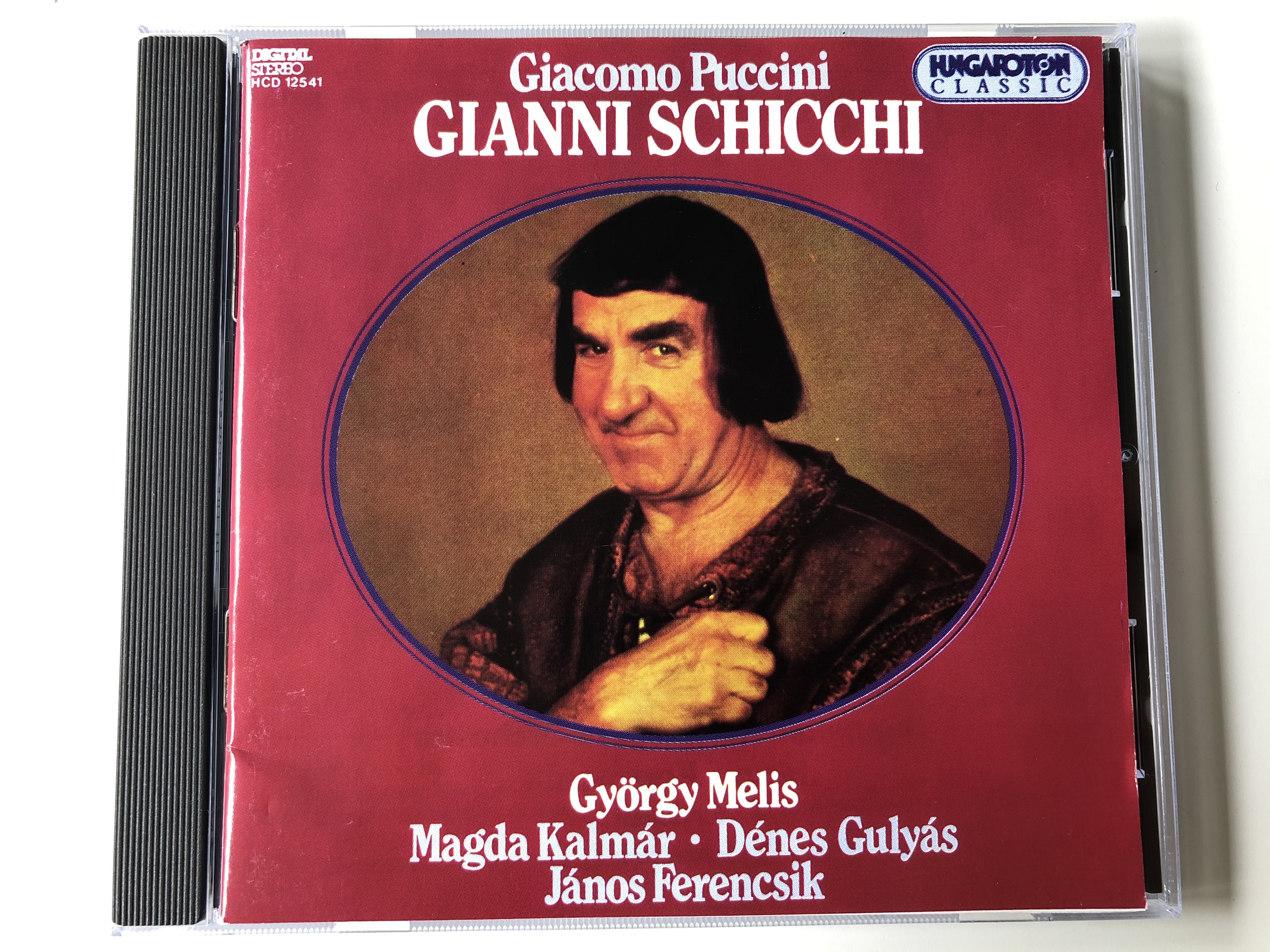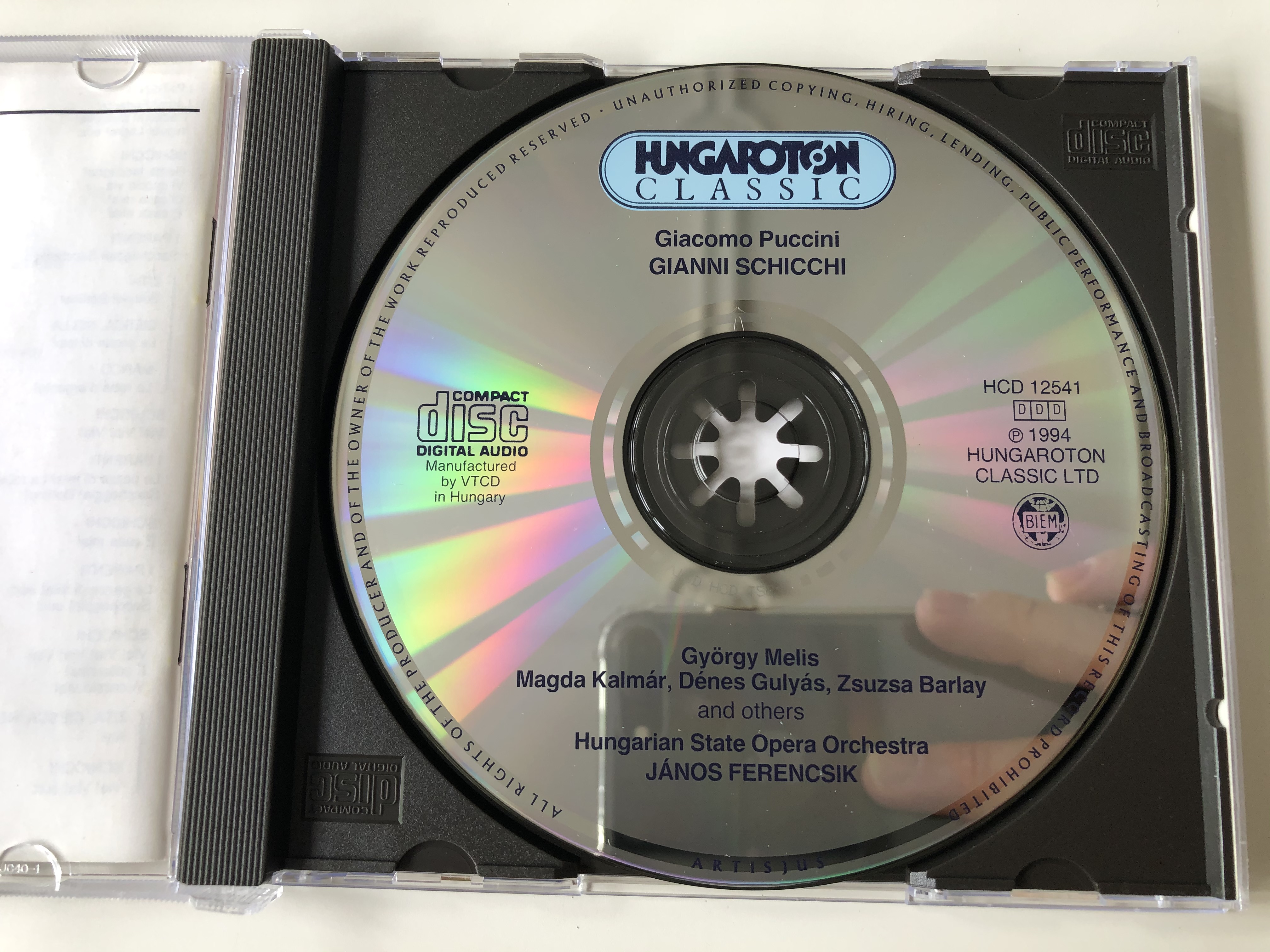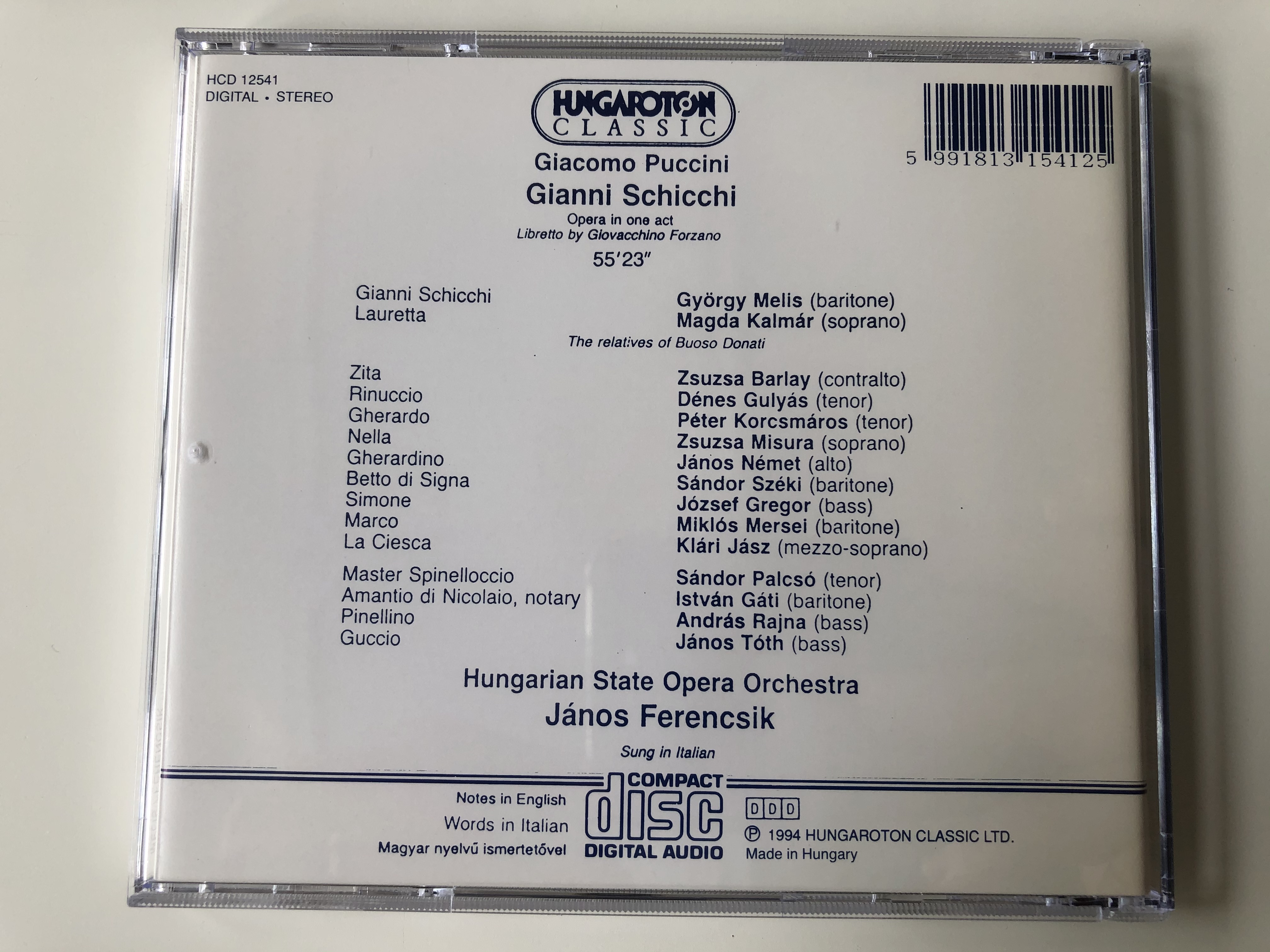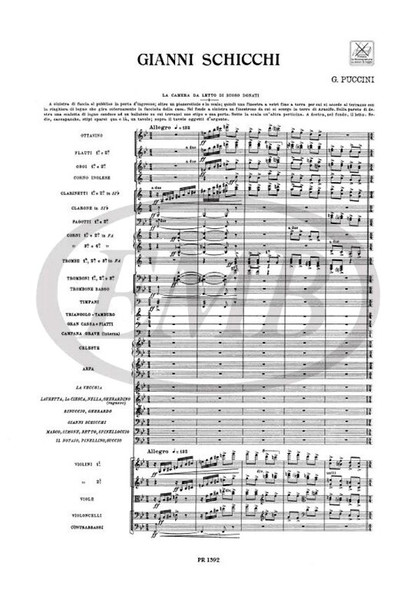Description
Giacomo Puccini – Gianni Schicchi / György Melis, Magda Kalmár, Denes Gulyas, János Ferencsik / Hungaroton Audio CD 1994 Stereo / HCD12541
UPC 5991813154125
Made in Hungary
Product details:
Tracklist:
| 1 | Gianni Schicchi, Opera In One Act |
More Details:
- Alto Vocals – János Német
- Baritone Vocals – István Gáti, György Melis, Miklós Mersei, Sándor Széki
- Bass Vocals – András Rajna, József Gregor, János Tóth
- Composed By – Giacomo Puccini
- Conductor – János Ferencsik
- Contralto Vocals – Zsuzsa Barlay
- Libretto By – Giovacchino Forzano
- Mezzo-soprano Vocals – Klári Jász
- Orchestra – Hungarian State Opera Orchestra
- Soprano Vocals – Magda Kalmár, Zsuzsa Misura
- Tenor Vocals – Denes Gulyas, Péter Korcsmáros, Sándor Palcsó
About Gianni Schicchi:
Gianni Schicchi is a comic opera in one act by Giacomo Puccini to an Italian libretto by Giovacchino Forzano, composed in 1917–18. The libretto is based on an incident mentioned in Dante's Divine Comedy. The work is the third and final part of Puccini's Il trittico (The Triptych)—three one-act operas with contrasting themes, originally written to be presented together. Although it continues to be performed with one or both of the other trittico operas, Gianni Schicchi is now more frequently staged either alone or with short operas by other composers. The aria "O mio babbino caro" is one of Puccini's best known, and one of the most popular arias in opera.
Puccini had long considered writing a set of one-act operas which would be performed together in a single evening, but faced with a lack of suitable subjects and opposition from his publisher, he repeatedly put the project aside. However, by 1916 Puccini had completed the one-act tragedy Il tabarro and, after considering various ideas, he began work the following year on the solemn, religious, all-female opera Suor Angelica. Gianni Schicchi, a comedy, completes the triptych with a further contrast of mood. The score combines elements of Puccini's modern style of harmonic dissonance with lyrical passages reminiscent of Rossini, and it has been praised for its inventiveness and imagination.
When Il trittico premiered at New York's Metropolitan Opera in December 1918, Gianni Schicchi became an immediate hit, whereas the other two operas were received with less enthusiasm. This pattern was broadly repeated at the Rome and London premieres and led to commercial pressures to abandon the less successful elements. Although on artistic grounds Puccini opposed performing the three operas except as the original triptych, by 1920 he had given his reluctant consent to separate performances. Gianni Schicchi has subsequently become the most-performed part of Il trittico and has been widely recorded.
About the Composer:
Giacomo Antonio Domenico Michele Secondo Maria Puccini (22 December 1858 – 29 November 1924) was an Italian opera composer who has been called "the greatest composer of Italian opera after Verdi".
Puccini's early work was rooted in traditional late-19th-century romantic Italian opera. Later, he successfully developed his work in the realistic verismo style, of which he became one of the leading exponents.
Puccini's most renowned works are La bohème (1896), Tosca (1900), Madama Butterfly (1904), and Turandot (1924), all of which are among the important operas played as standards.
















































